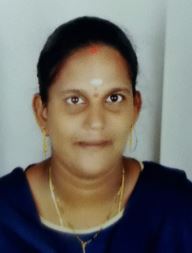Department of Mechanical Engineering
About the Department
Mechanical engineering is an engineering branch that combines engineering physics and mathematics principles with materials science to design, analyze, manufacture, and maintain mechanical systems. The Department of Mechanical Engineering was started to provide technical education to the socially and economically backward students of north coastal Andhra Pradesh with the following vision and mission.
- The department of Mechanical engineering has been started in 2018 to facilitate the most down trodden students.
- To fulfill the life ambitions of the students.
- They are thriving hard to the basic amenities to the students.
Vision
To emerge as a Centre of Excellence and promulgate advanced technologies in the field of Mechanical Engineering that indulge in providing innovative solutions to meet the ever changing needs of the industry and society.
Mission
- To build an academic environment of teaching and lifelong learning for students and to make them competitive in context with advanced technological, economical changes.
- To produce graduates who meet the rapidly changing needs of industry which demand new skills.
- To empower the undergraduate students to involve themselves in high-end research work to build skills beyond curriculum.
- To promote spirit of entrepreneurship among the students.
- Strengthen the skill set of the students through curricular, co-curricular &
extra-curricular activities.
- Currently the Department offers only U.G Course.
- The department has well sophisticated Mechanical Laboratories.
- The faculty are actively involved in research in the areas of fluid mechanics combustion and energy systems design and manufacturing dynamics and control materials and structures vibrations.
Faculty Members
Programme (POS)
Engineering Graduates will be able to:
PO1:
Engineering knowledge: Apply the knowledge of mathematics, science and engineering fundamentals to solve the complex engineering problems.
PO2:
Problem analysis: Identify, formulate, research literature and analyse complex engineering problems reaching substantiated conclusions using principles of mathematics, natural sciences and engineering sciences.
PO3:
Design/Development of solutions: Develop solutions for complex mechanical engineering problems and design system components or processes that meet the specific needs of the public health, safety, cultural, societal, and environmental considerations.
PO4:
Conduct investigations of complex problems: Use research-based knowledge and research methods including design of experiments, analysis, interpretation of data and synthesis of the information to provide valid conclusions.
PO5:
Modern tool usage: Create, select, and apply appropriate techniques, resources, and modern engineering and IT tools including prediction and modelling to complex mechanical engineering activities with an understanding of the limitations.
PO6:
The engineer and society: Apply reasoning informed by the contextual knowledge to assess societal, health, safety, legal and cultural issues and the consequent responsibilities relevant to the professional engineering practice.
PO7:
Environment and sustainability: Understand the impact of the professional engineering solutions in societal and environmental contexts, and demonstrate the knowledge of, and need for sustainable development.
PO8:
Ethics: Apply ethical principles and commit to professional ethics, responsibilities and norms of the engineering practice.
PO9:
Individual and team work: Function effectively as an individual, and as a member or leader in diverse teams, and in multidisciplinary settings.
PO10:
Communication: Communicate effectively with the engineering community and with society at large, such as, being able to comprehend and write effective reports and design documentation, make effective presentations, give and receive clear instructions .
PO11:
Project management and Finance: Understand the knowledge of the engineering and management principles in applying these to one‟s own work, as a member and leader in a team, to manage projects in multidisciplinary environments .
PO12:
Life-long learning: Recognize the need for the ability to engage in independent and life long learning in the broadest context of technological change. .
Programme Specific Outcomes (PSOs)
PSO1:
Apply mechanical and interdisciplinary knowledge to analyze, design and manufacture products to address the needs of the society.
PSO2:
Apply state of the art tools and techniques to conceptualize, design and introduce new products, processes, systems and services.
Curriculum framing:
- The University administration and College of Engineering has taken utmost care in designing the curriculum of each department and also scriplosily following the guidelines given by AICTE
- The Outcome based curriculum has prepared by considering AICTE , APSHE, and 1 IIT and 1 State University and 1 autonomous Institute as reference
- Many brainstorming sessions has been conducted among stakeholders to finalize the credits and curriculum and detailed syllabus and the above said program outcomes, program specific outcomes, program educational objectives and learning outcomes includes in the detailed syllabus
- And it was finalized in a board of studies meeting held on 6th July 2019 which is resolved.
- The entire course is having average credits of 170 for all three branches i.e. ECE, CSE, MECH. And each Semester is having average credits of 22 for all three branches
- Constitution of Board of Studies: The BOS contains three categories. Category-I, Category-II, Category-III.







